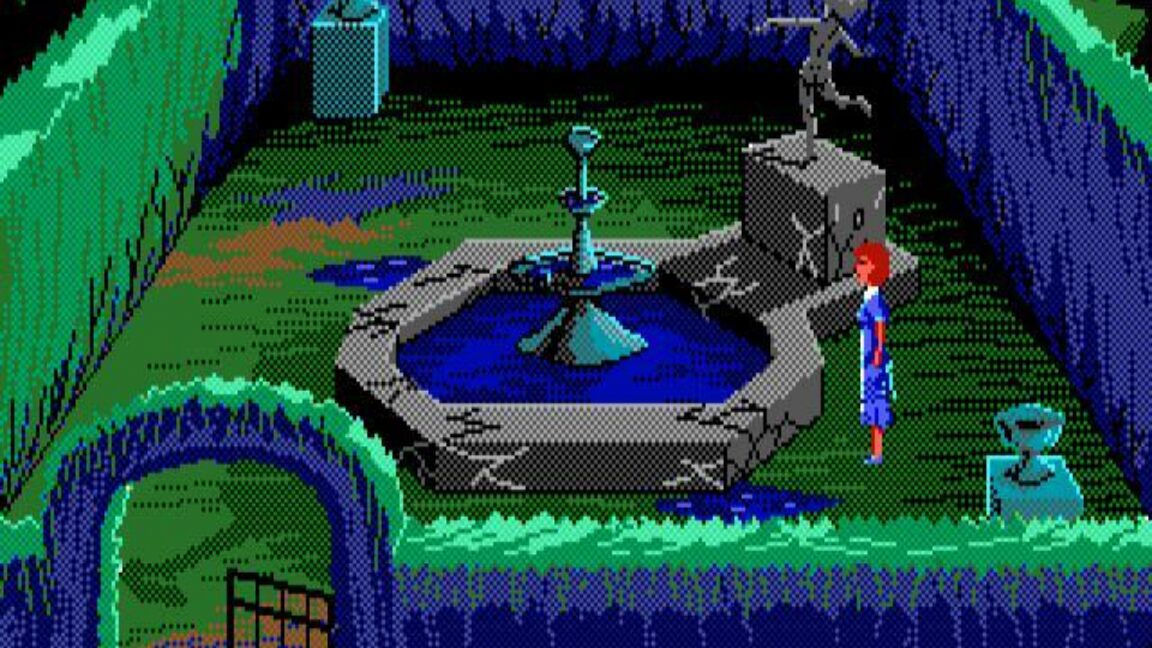Even in my youth, I preferred the idea of point-and-click adventure games to reality. I appreciated how they transported me to other worlds, each with its own unique rules, history, and fascinating characters. However, like many, I often faced the harsh reality of solving bizarre and obscure puzzles in a time before online walkthroughs existed.
Because of that, I almost never finished point-and-click adventure games, but there’s one major exception: I’ve completed Roberta Williams’ “The Colonel’s Bequest” multiple times.
“The Colonel’s Bequest,” one of the last Sierra adventure games to still use a text parser, follows the story of a young woman named Laura Bow who visits a Southern U.S. mansion owned by the grandfather of her college friend, Colonel Henri Dijon. While she’s there, a dispute over the Colonel’s will erupts, and it becomes clear that a murderer is on the loose.
The player spends several in-game days on the plantation, finding clues and eavesdropping on conversations to piece everything together and potentially uncover the truth while staying alive.
It was the first game to introduce me to the idea of NPCs being in different places at different times, an assumption that continues to fascinate me about a game to this day. But most of all, it was great to play a game with the feel of a Sierra adventure game, but without the frustrating puzzles.
[Image of text parser in The Colonel’s Bequest]
In “The Colonel’s Bequest,” you can even finish the game without solving the murder, and there are multiple possible endings, so you’re encouraged to try it again after your first time, which is why I replayed it several times.
Also, I loved this game in part because it was something I shared with my family.
Many people have stories about playing games with their fathers as children, but despite the fact that my father is a huge computer expert (he was a software engineer commercially), he wasn’t that into computer games when I was growing up. I rarely saw him play them, and it wasn’t until I introduced him to the real-time strategy game similar to “Age of Empires” called “Rise of Nations” during college that he became interested in a game. (He still plays “Rise of Nations” to this day.)
Click here to preview your posts with PRO themes ››
However, my mother was a different story. I remember her playing “Dr. Mario” a lot, and we played “Donkey Kong Country” together when I was younger, the standard stuff of millennial childhood family gaming. But the games I remember most of all from childhood are adventure games. She loved “King’s Quest,” of course, but I also remember her being particularly fond of the “Hugo” game trilogy.
As I mentioned above, I struggled to get into them. Fortunately, we could agree on “The Colonel’s Bequest.”
[Image of cutscene in The Colonel’s Bequest]
I remember taking turns with my mother while trying to play later versions of the game. I enjoyed seeing the secrets she’d found that I hadn’t seen, because perhaps I was too young to think like her.
The games you play with family stick with you more, so I think that’s mostly why I remember “The Colonel’s Bequest” so fondly—because, as I recall, it was my mother’s favorite game.
**The Legacy of The Colonel’s Bequest**
“The Colonel’s Bequest” may have been a pivotal game for me personally, but it hasn’t resonated in gaming history as much as “King’s Quest,” “The Secret of Monkey Island,” or other adventure titles.
I think part of the reason is that many people might understandably find the game a little boring. There’s not really anything to challenge you, and your character kind of just goes along for the ride. She’s not the center of the story, and she doesn’t really act. She just walks around, listens, and looks until the clock runs out.
This formula has a niche appeal as compared to traditional point-and-click adventure games.
However, the game has its fans. You can [buy and download it from GOG](https://www.kqzyfj.com/click-8984087-15232592?url=https%3A%2F%2Fwww.gog.com%2Fen%2Fgame%2Fthe_colonels_bequest) to play it today, of course, but it also recently inspired a not-at-all-subtle spiritual successor by developer Julia Minamata called [“The Crimson Diamond,”](https://www.tkqlhce.com/click-8984087-15232592?url=https%3A%2F%2Fwww.gog.com%2Fen%2Fgame%2Fthe_crimson_diamond) which [we covered here at Ars](https://arstechnica.com/gaming/2024/08/the-crimson-diamond-is-a-wonderful-ega-like-graphic-adventure-game-for-2024/). That game is worth checking out, too.
Click here to preview your posts with PRO themes ››
[Image of The Crimson Diamond]
And, of course, Roberta and Ken Williams, the creators of “The Colonel’s Bequest,” are still active. They relatively recently released [a 3D remake of “Colossal Cave,”](https://www.jdoqocy.com/click-8984087-15232592?url=https%3A%2F%2Fwww.gog.com%2Fen%2Fgame%2Fcolossal_cave) a title that many consider to be the most important ancestor of the point-and-click adventure genre.
*Ars Technica may earn compensation for sales from links in this post through affiliate programs.*
Source: [Ars Technica](https://arstechnica.com/gaming/2025/10/roberta-williams-the-colonels-bequest-was-a-different-type-of-adventure-game/)





